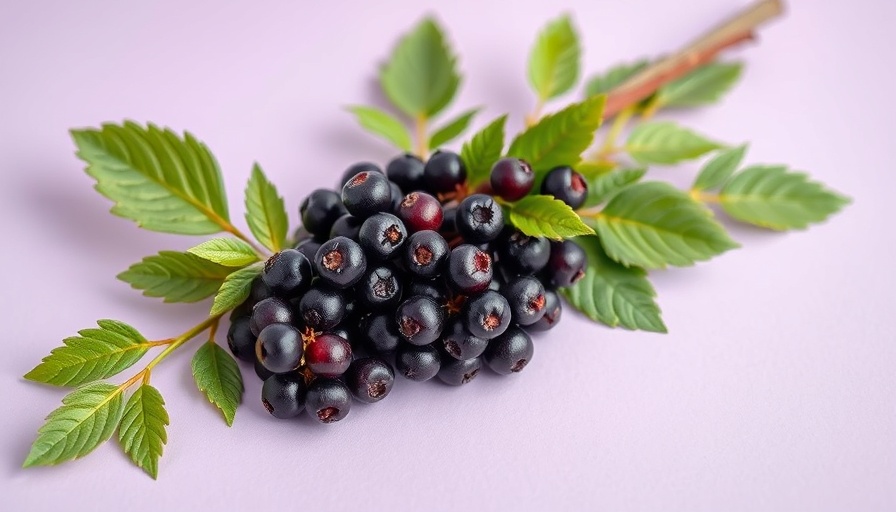
Understanding the Impact of Natural Supplements on Colds and Flu
As the colder months arrive, many of us begin to consider what we can do to support our immune systems. With millions of cold and flu cases reported yearly, effective strategies are essential to promote health during the peak seasons of illness. Popular natural supplements, such as elderberry, echinacea, and cranberries, often emerge in conversations about prevention and treatment options. But how effective are these remedies compared to traditional measures like flu vaccines?
The Role of Flu Vaccines: A Strong Defense Against Illness
The CDC advocates for flu vaccinations, suggesting that most people over six months should get vaccinated annually. The efficacy of flu shots varies, typically reducing the risk of getting the flu by about 40 to 50 percent, especially in children where the results are more pronounced. It's important to recognize that while flu shots reduce risks significantly, they are not foolproof.
Elderberry: Nature's Powerful Ally
Research has shown that elderberry can be remarkably effective in fighting flu-like symptoms. In a 1990s trial, participants taking elderberry showed over 20 times the odds of improvement before the fifth day compared to the control group. Subsequent studies echoed these findings, indicating elderberry's potential to reduce symptom duration, particularly highlighted by a 312-person clinical trial involving air travelers. Elderberry users who contracted colds reported suffering less severely and for fewer days compared to non-users.
Investigating Echinacea: Hope with Caution
Similar to elderberry, echinacea has been sought after for its immune-supporting properties. Some studies indicate echinacea might slightly lessen cold symptoms, though with borderline statistical significance. When compiling several studies, a potential 20 percent reduction in cold incidence is suggested. However, concerns arise over publication bias, with several studies possibly omitted from results. Therefore, the efficacy of echinacea remains less certain than that of elderberry.
Cranberries: A Nutritional Boost
Cranberries are renowned for their health benefits, particularly in urinary tract health, but their role in immune function tends to be less discussed. While not directly linked to cold relief, cranberries are packed with antioxidants—crucial for overall well-being and immune support.
Future Considerations: Integrating Natural Remedies Safely
As we navigate through cold and flu seasons, the integration of elderberry and echinacea into our wellness routines may provide additional layers of support, especially when combined with a flu shot. However, it’s vital to consult healthcare professionals when considering these treatments, primarily due to the bias in published studies related to these herbal remedies.
Taking Charge of Your Health: Independent Investigation Is Key
While traditional medicine plays an important role in preventing illnesses, exploring holistic approaches is becoming increasingly popular. By independently investigating the efficacy and safety of natural supplements like elderberry and echinacea, individuals can enhance their understanding and make informed decisions about their health.
Through actionable insights and by maintaining a well-rounded wellness strategy—encompassing vaccinations, nutritional choices, and possibly incorporating elderberry—individuals can empower themselves to face cold and flu seasons with resilience.
 Add Row
Add Row  Add
Add 




Write A Comment